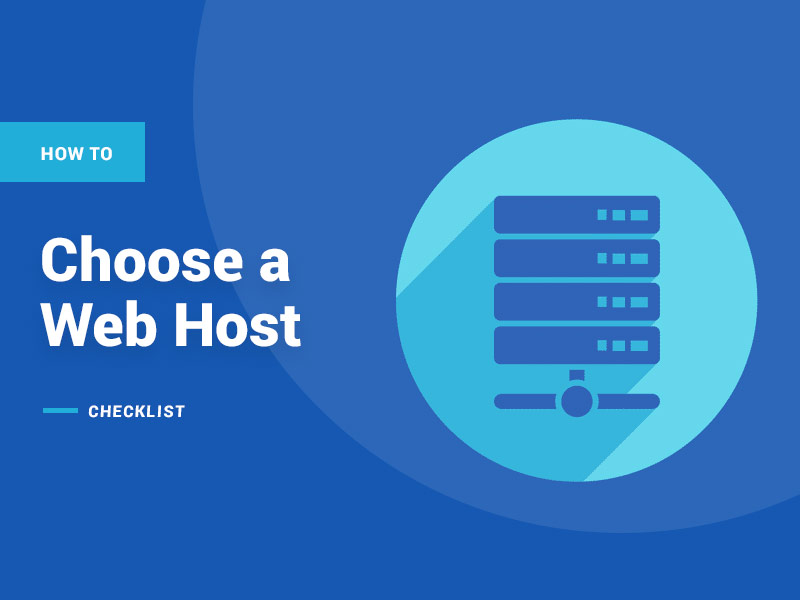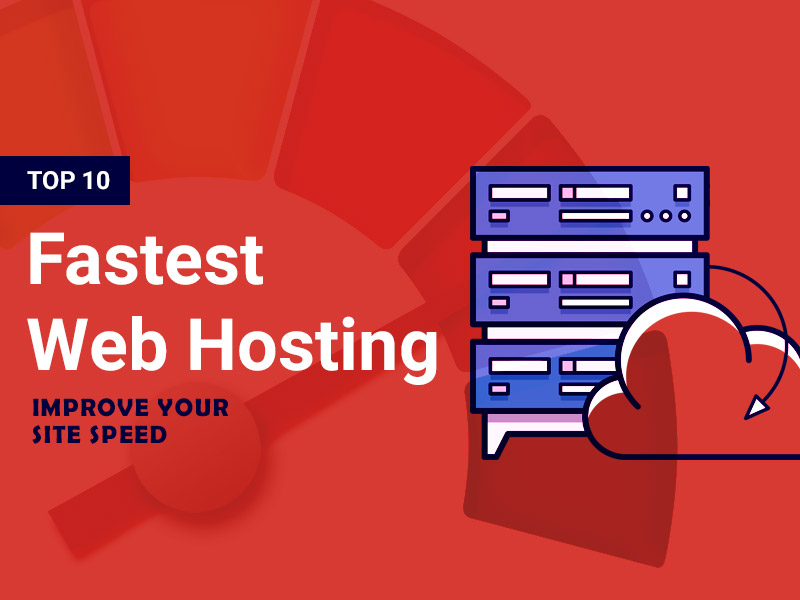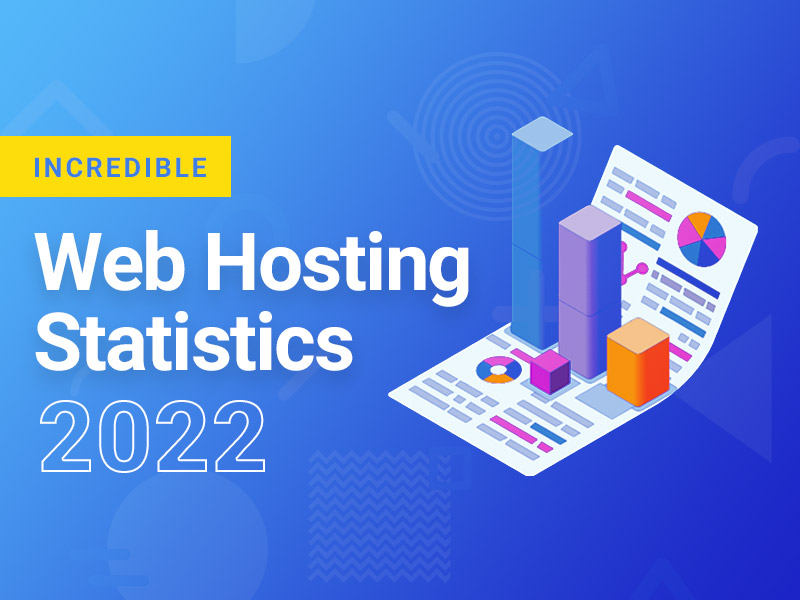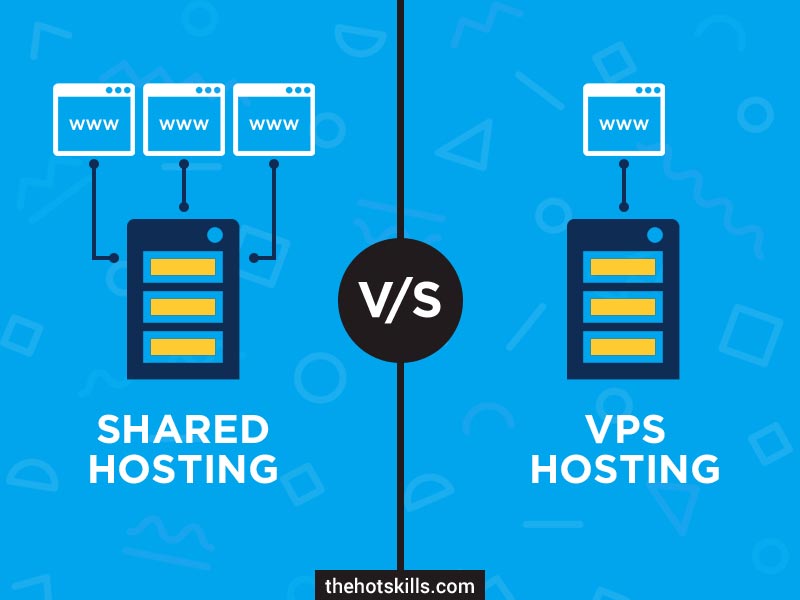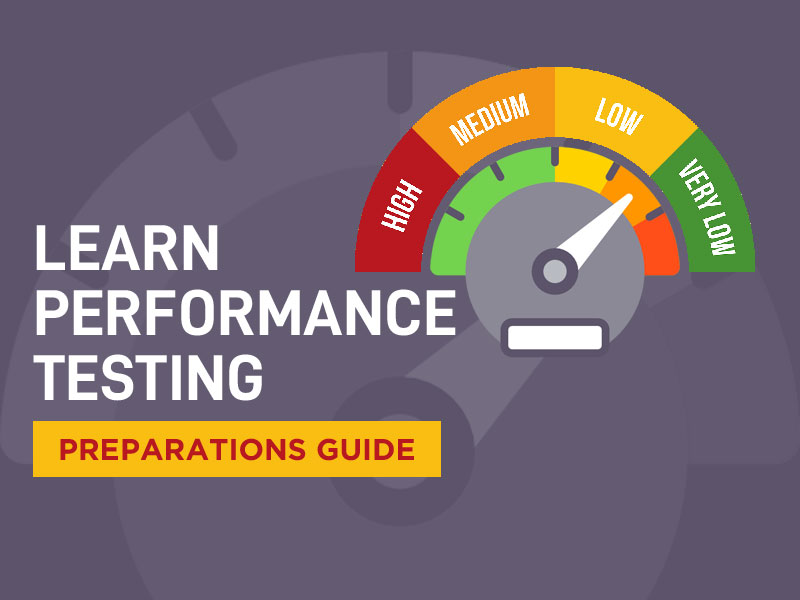Web hosting is an online service that allows brands and individuals to post a website or web page on the Internet. Hosting is what makes your website available on the world wide web so that it can be viewed by anyone who searches for it.
Web hosting providers offer various technologies and services required to house, serve and maintain the files and folders of a website. These include a range of services like website builders, SSL certificates, website security, website backup, malware removal, dedicated servers and management, professional email, WordPress hosting & themes and even domain services.
Some of the best hosting providers to choose from right now are Bluehost, InMotion Hosting, HostGator, Hostinger and GoDaddy. If you are planning to buy hosting plan from any of the above hosting providers, do check out the latest hosting deals and offers at Khojdeal. You can save some money that way.
However, before we enumerate the pointers to keep in mind when choosing a hosting for your website, it is important to understand how many different types of hosting there are.
Types Of Web Hosting
Depending on your requirement, there are different types of web hosting you can choose from:
Shared Hosting
Shared web hosting is a hosting service where many websites are hosted on a single server. It is the most economical hosting option with a lower server maintenance cost. In this type of hosting, server resources like RAM and CPU are shared by multiple domains. While this kind of hosting is alright for a basic website, it is not very flexible in terms of software and updates.
Reseller Hosting
Reseller hosting is a type of web hosting where the account owner can use the hard drive and bandwidth allocated to them to host websites for third parties. There are a few types of plans which differ in resource availability however, there is also the option of an unlimited reseller hosting plan. Brands are increasingly using reseller hosting to supplement or create a full-income flow to themselves.
Virtual Dedicated Server
Virtual Dedicated Server hosting, also known as virtual Private Server (VPS) is the middle ground between shared hosting and dedicated server hosting. It is a unique hosting service where each website is hosted within its own space on a virtual server, while still sharing a physical server with other websites. While VPS offers the cost benefits of shared hosting and control of dedicated hosting, it is not capable of handling incredibly high traffic and intensive usage.
Dedicated Hosting Service
In a dedicated hosting service, account owners get their own dedicated servers and have full root and admin access, giving them complete control over their server. Dedicated servers are one of the most expensive hosting options and are ideal for websites that attract high levels for traffic.
Managed Hosting Service
In a managed hosting service, the account owners get their own server but are not allowed full control over it by being denied root and admin access. They are however allowed to manage their files and data via FTP or other remote management tools.
Colocation Web Hosting Service
Colocation hosting is a type of hosting service, in which the service provider leases a colocation center and provides housing, hardware, software and services for servers. The clients own the servers and claim full authority over the hardware and software upgrades or changes. However, the colocation is responsible for maintaining a secure server environment.
Cloud Hosting
Cloud hosting is the latest hosting technology that’s based on clustered load-balanced servers and utility billing. It works via a network and enables companies to consume computing resources like a utility. Users are billed only for resources consumed by them. To dive deeper into Cloud hosting solutions and find out what they can do for your business, check out this Cloud vs VPS hosting guide from Cloudways.
Clustered Hosting
Clustered hosting is a type of web hosting that spreads the load of hosting across multiple physical machines or nodes. This type of hosting eliminates single points of failure and increases the availability of the website.
Checklist – How to Choose a Web Host
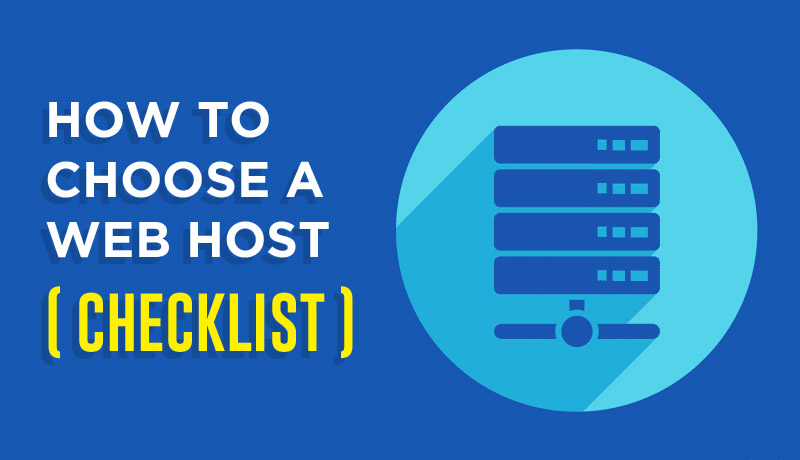
Now that you’re aware about the different types of web hosting services you can choose from, take a look at some expert-recommended pointers that you should take into account while choosing a web host for your website:
- Support: The web hosting you opt for should provide free and expert technical support that’s available 24/7. When you have any issues with the server of your website, the service provider should address it promptly and proficiently.
- Security: With the increase in cyber-crime these days, comes an increased demand for better website security. It is advisable to go for a hosting service that provides best-in-class security with 24/7 monitoring, DDoS protection, SSL certificates, malware removal & hack repair, web application firewall, code signing certificate and advanced security monitoring.
- Uptime: Uptime is the amount of time a server stays up and running.It’s a measure of how good a hosting provider is at maintaining its system. Most web hosting providers have an uptime of 99.9%.
- Backup & One-click site restoration: Worried about data loss caused by server crashes and malware? Opt for a hosting provider that gives an automatic backup & One-click site restoration option. Every file, folder and database on your website is automatically backed upon Cloud. Backup copies are kept on a local storage for emergency access or migration. In case of disaster strikes, one-click site restoration restores a clean version of the website in just one click.
- Website builder: Many hosting services provide automated website builder that allow you to build a modern, professional website with no technical knowledge. An easy, drag and drop page builder and customizable themes allow account owners to create stunning and responsive websites.
- Marketing & SEO Tools: From Search Engine Optimization to Email Marketing and managing the social platform, many hosting providers give various marketing and SEO tools to account owners. These tools help in creating brand awareness and engagement.
- Easy upgrades: Once your brand builds an image for itself, you might need to upgrade to a plan that gives more storage and bandwidth. That’s why it’s practical to go for a hosting provider that allows for easy and seamless upgrades.
- Refund Policy: Check what kind of refund policy the hosting provider offers. Opt for a host that provides a offers a trial period so that in case you’re not satisfied with the hosting, you can cancel it without paying any penalties. Also, make sure that you don’t have to pay excessive penalties if you cancel the subscription after the trial period.
- Subscription Renewal: While some hosts require a monthly renewal, others offer one- and three-year renewal plans. By paying for a longer period upfront, you can often save some money down the line.
- Easy FTP & SFTP Access: File Transfer Protocol (FTP) and Secure File Transfer Protocol (SFTP) are vital tools for website maintenance.The host you opt you should give you easy FTP & SFTP access so that you can easily manage your website.
Besides the above-mentioned pointer, you should also consider things like – how much assistance you require, what are your website and server management skills, how much traffic you expect, how much storage will you need, what’s your hosting budget and do you need email addresses for your domain.
